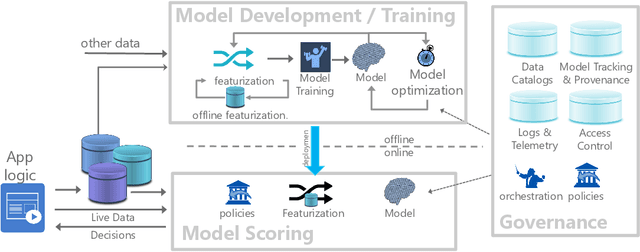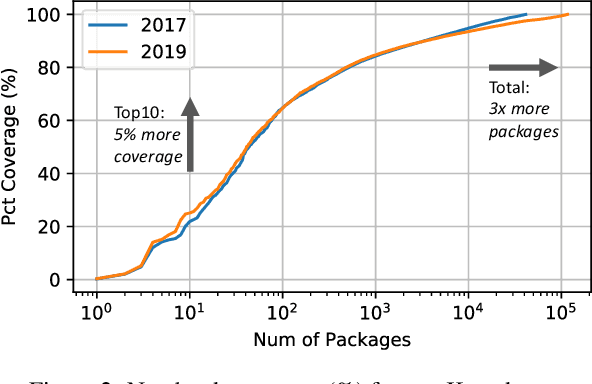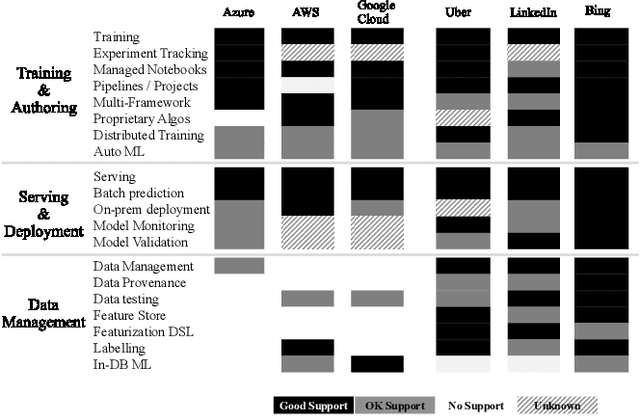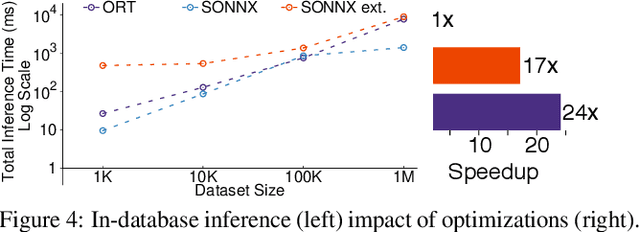Jyoti Leeka
Sibyl: Forecasting Time-Evolving Query Workloads
Jan 08, 2024Abstract:Database systems often rely on historical query traces to perform workload-based performance tuning. However, real production workloads are time-evolving, making historical queries ineffective for optimizing future workloads. To address this challenge, we propose SIBYL, an end-to-end machine learning-based framework that accurately forecasts a sequence of future queries, with the entire query statements, in various prediction windows. Drawing insights from real-workloads, we propose template-based featurization techniques and develop a stacked-LSTM with an encoder-decoder architecture for accurate forecasting of query workloads. We also develop techniques to improve forecasting accuracy over large prediction windows and achieve high scalability over large workloads with high variability in arrival rates of queries. Finally, we propose techniques to handle workload drifts. Our evaluation on four real workloads demonstrates that SIBYL can forecast workloads with an $87.3\%$ median F1 score, and can result in $1.7\times$ and $1.3\times$ performance improvement when applied to materialized view selection and index selection applications, respectively.
GEqO: ML-Accelerated Semantic Equivalence Detection
Jan 02, 2024



Abstract:Large scale analytics engines have become a core dependency for modern data-driven enterprises to derive business insights and drive actions. These engines support a large number of analytic jobs processing huge volumes of data on a daily basis, and workloads are often inundated with overlapping computations across multiple jobs. Reusing common computation is crucial for efficient cluster resource utilization and reducing job execution time. Detecting common computation is the first and key step for reducing this computational redundancy. However, detecting equivalence on large-scale analytics engines requires efficient and scalable solutions that are fully automated. In addition, to maximize computation reuse, equivalence needs to be detected at the semantic level instead of just the syntactic level (i.e., the ability to detect semantic equivalence of seemingly different-looking queries). Unfortunately, existing solutions fall short of satisfying these requirements. In this paper, we take a major step towards filling this gap by proposing GEqO, a portable and lightweight machine-learning-based framework for efficiently identifying semantically equivalent computations at scale. GEqO introduces two machine-learning-based filters that quickly prune out nonequivalent subexpressions and employs a semi-supervised learning feedback loop to iteratively improve its model with an intelligent sampling mechanism. Further, with its novel database-agnostic featurization method, GEqO can transfer the learning from one workload and database to another. Our extensive empirical evaluation shows that, on TPC-DS-like queries, GEqO yields significant performance gains-up to 200x faster than automated verifiers-and finds up to 2x more equivalences than optimizer and signature-based equivalence detection approaches.
Cloudy with high chance of DBMS: A 10-year prediction for Enterprise-Grade ML
Aug 30, 2019



Abstract:Machine learning (ML) has proven itself in high-value web applications such as search ranking and is emerging as a powerful tool in a much broader range of enterprise scenarios including voice recognition and conversational understanding for customer support, autotuning for videoconferencing, inteligent feedback loops in largescale sysops, manufacturing and autonomous vehicle management, complex financial predictions, just to name a few. Meanwhile, as the value of data is increasingly recognized and monetized, concerns about securing valuable data and risks to individual privacy have been growing. Consequently, rigorous data management has emerged as a key requirement in enterprise settings. How will these trends (ML growing popularity, and stricter data governance) intersect? What are the unmet requirements for applying ML in enterprise settings? What are the technical challenges for the DB community to solve? In this paper, we present our vision of how ML and database systems are likely to come together, and early steps we take towards making this vision a reality.
 Add to Chrome
Add to Chrome Add to Firefox
Add to Firefox Add to Edge
Add to Edge